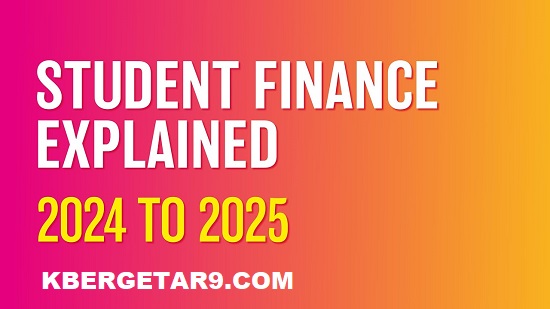Student loans have become an indispensable part of the higher education landscape, enabling countless individuals to pursue their academic dreams. In this comprehensive guide, we delve into the intricacies of student loans, providing insights into types, application processes, repayment strategies, and the broader financial implications.
Introduction to Student Loans
Understanding the Significance of Student Loans
Student loans serve as a financial lifeline for many aspiring students, bridging the gap between tuition costs and available resources. Without access to such funding, numerous individuals would find it challenging, if not impossible, to pursue higher education.
Why Student Loans are Essential for Higher Education
In today’s economy, a college degree is often a prerequisite for securing lucrative career opportunities. Student loans enable students from diverse socioeconomic backgrounds to access educational opportunities that would otherwise be out of reach.

Types of Student Loans
Federal Student Loans
Federal student loans, backed by the government, typically offer more favorable terms and repayment options compared to private loans. These loans are need-based and do not require a credit check.
Private Student Loans
Private student loans, offered by banks and financial institutions, often come with higher interest rates and stricter eligibility criteria. However, they can be a viable option for students who have exhausted federal loan options.
Applying for Student Loans
Eligibility Criteria
To qualify for federal student loans, applicants must meet specific eligibility criteria, including enrollment in an accredited institution and maintaining satisfactory academic progress.
Application Process
The application process for student loans involves completing the Free Application for Federal Student Aid (FAFSA) for federal loans and submitting additional documentation for private loans.
Understanding Loan Repayment
Grace Period
Most student loans come with a grace period, allowing borrowers a window of time after graduation before they must begin repaying their loans. During this period, interest may accrue, depending on the type of loan.
Repayment Plans
Federal student loans offer various repayment plans, including income-driven options that adjust monthly payments based on borrowers’ income levels. Private loans may have fewer flexible repayment options, but borrowers can often negotiate terms with lenders.
Managing Student Loan Debt
Budgeting Strategies
Effective budgeting is essential for managing student loan debt responsibly. Creating a budget that accounts for monthly loan payments, living expenses, and other financial obligations can help borrowers avoid default.
Loan Forgiveness Programs
Some borrowers may qualify for loan forgiveness programs, such as Public Service Loan Forgiveness (PSLF), which forgives remaining loan balances after a specified period of qualifying payments for those working in public service or non-profit sectors.
Impact of Student Loans on Financial Health
Credit Score Implications
Student loans can have a significant impact on borrowers’ credit scores, as payment history and debt-to-income ratios are key factors in credit scoring models. Timely repayment is crucial for maintaining good credit standing.
Long-term Financial Planning
Borrowers should consider the long-term financial implications of student loans, including their effects on savings, investments, and overall financial stability. Strategic planning can help mitigate potential challenges.
Current Trends and Changes in Student Loan Finance
Legislative Updates
The landscape of student loan finance is constantly evolving, with policymakers introducing reforms to address issues such as loan forgiveness, interest rates, and repayment terms.
Technological Advancements
Advancements in technology have streamlined the student loan process, making it easier for borrowers to apply for loans, manage their accounts, and access resources for financial literacy and repayment assistance.
Tips for Responsible Borrowing
Borrowing Only What is Needed
Borrowers should exercise restraint and borrow only the amount necessary to cover tuition, fees, and essential living expenses. Taking out excessive loans can lead to financial strain in the future.
Exploring Alternative Funding Options
In addition to student loans, students should explore alternative sources of funding, such as scholarships, grants, work-study programs, and savings, to minimize reliance on debt.
Conclusion
In conclusion, student loans play a vital role in facilitating access to higher education for millions of individuals. By understanding the nuances of student loan finance, borrowers can make informed decisions that empower them to achieve their academic and financial goals.

Unique FAQs
- Are federal student loans better than private loans?
- Federal student loans generally offer more favorable terms and repayment options compared to private loans, making them a preferred choice for many borrowers.
- How do I know if I qualify for loan forgiveness?
- Eligibility for loan forgiveness programs varies depending on factors such as employment type, repayment plan, and timely payment history. Consulting with a financial aid advisor can provide clarity.
- What should I do if I can’t afford my monthly loan payments?
- Borrowers facing financial hardship should explore options such as income-driven repayment plans, deferment, or forbearance to temporarily alleviate the burden of loan payments.
- Can student loans be discharged in bankruptcy?
- While it is possible to discharge student loans in bankruptcy under certain circumstances, such as undue hardship, it is generally challenging to meet the strict criteria established by bankruptcy courts.
- How can I avoid defaulting on my student loans?
- Staying in communication with loan servicers, exploring repayment assistance programs, and proactively addressing financial challenges can help borrowers avoid default and mitigate the consequences.


